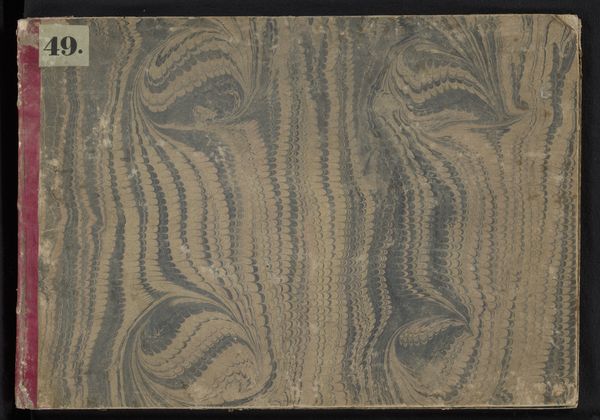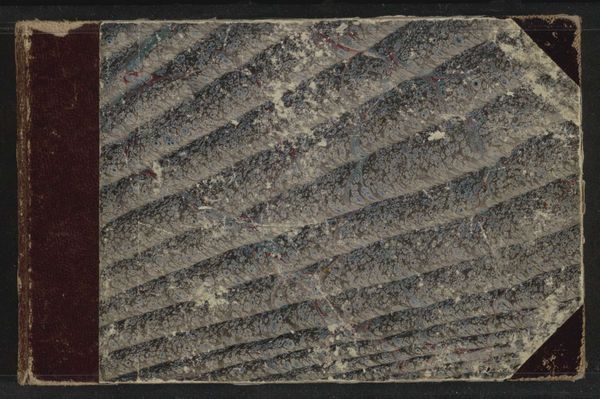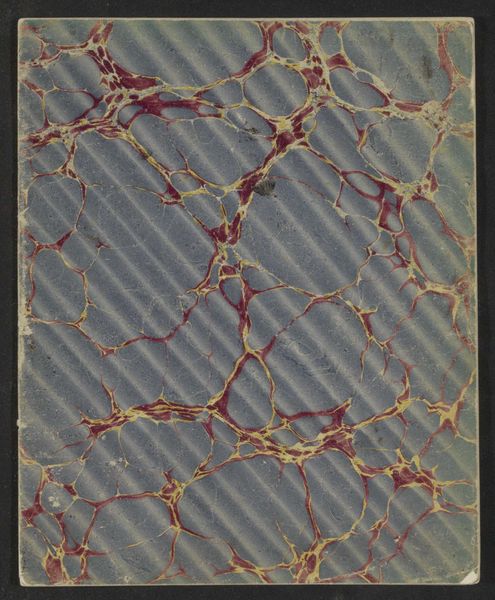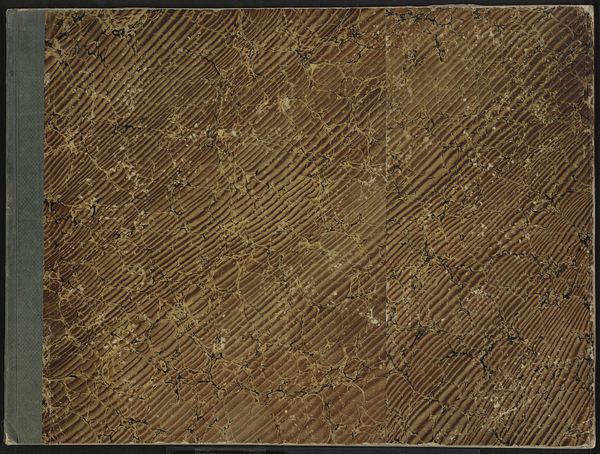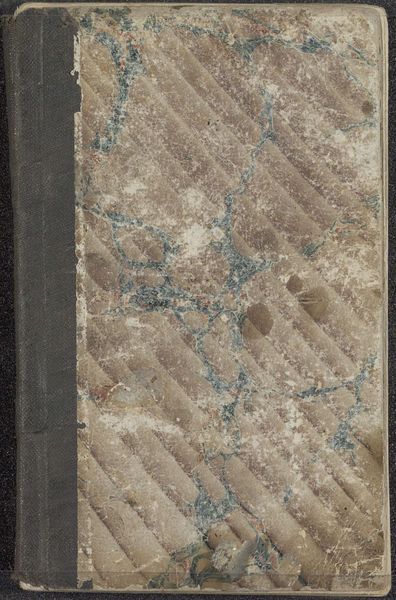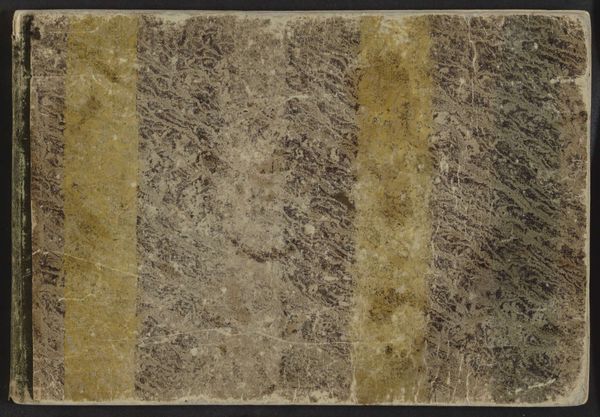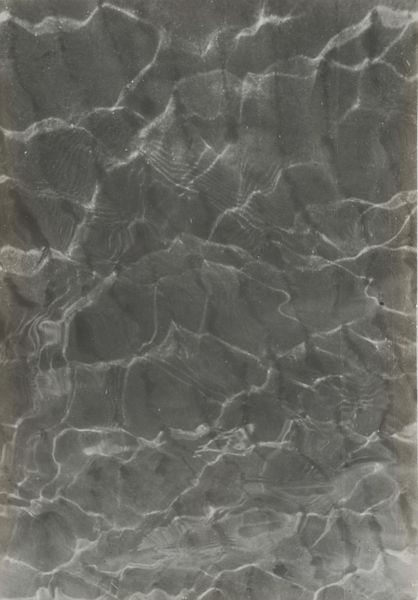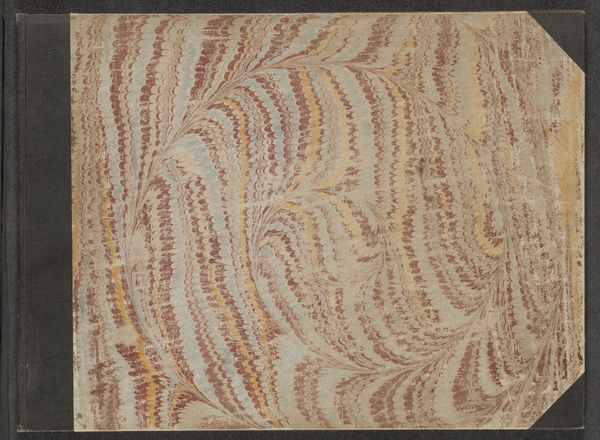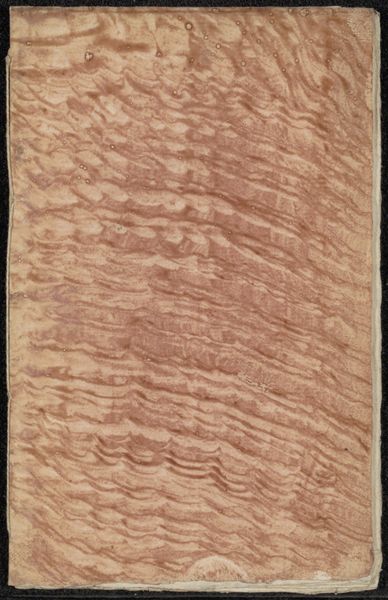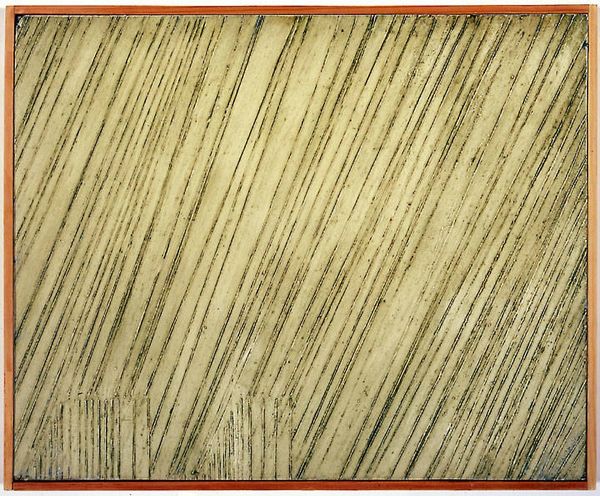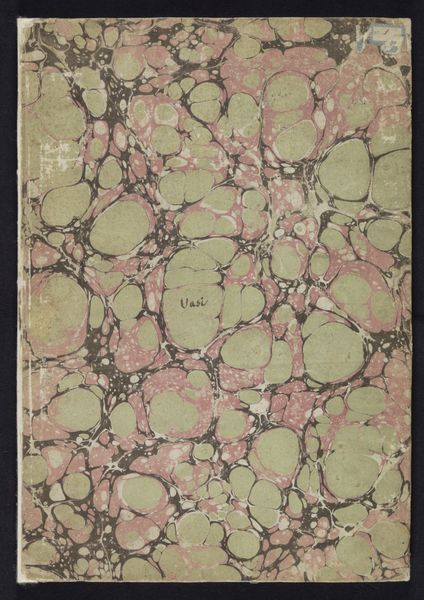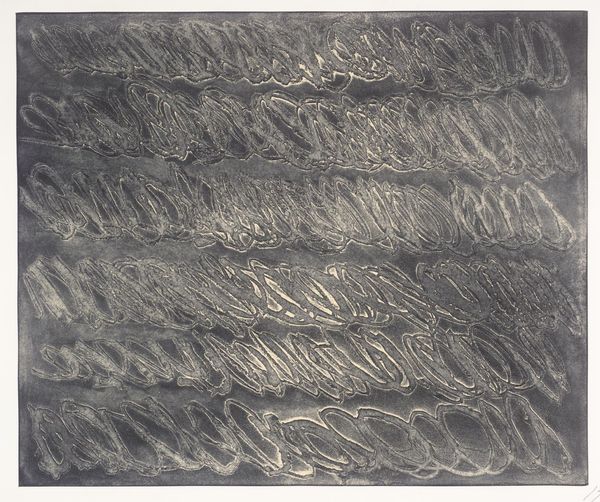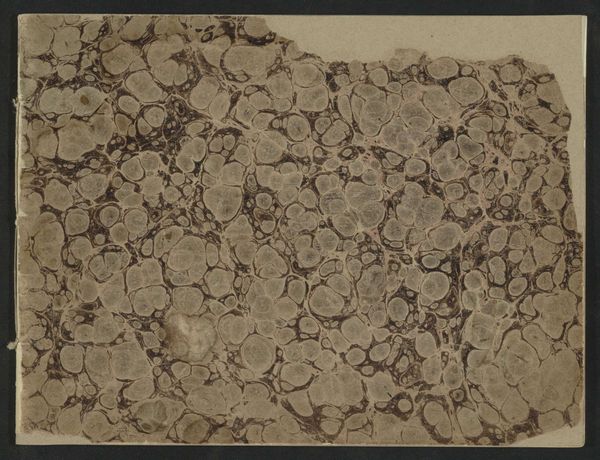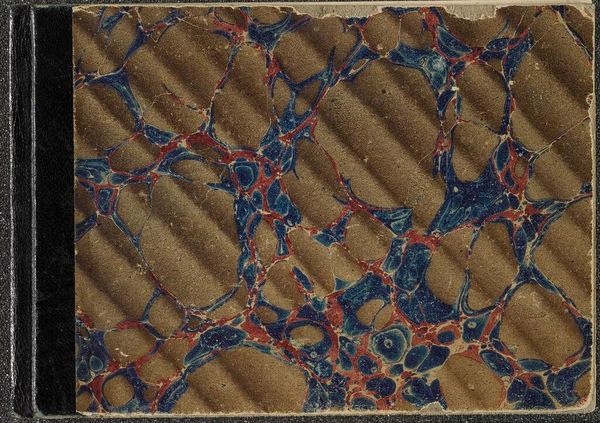
collage, paper
#
collage
#
paper
#
geometric pattern
#
geometric
#
line
Dimensions: height 171 mm, width 227 mm, thickness 9 mm, width 460 mm
Copyright: Rijks Museum: Open Domain
Editor: We’re looking at a sketchbook with 41 pages, made with paper and collage. It dates roughly between 1828 and 1897, attributed to Adrianus Eversen. There is a pattern on its cover and it reminds me of the kind of marbled paper you see covering old books. How do you interpret this sketchbook within its historical context? Curator: I see this object as a cultural artifact reflecting 19th-century practices of recording and classifying the world. The sketchbook itself embodies a mode of knowledge production linked to colonialism and the rise of scientific categorization. I’m interested in who used it, what they were sketching. Was it a tool of observation used in the service of Empire? A record of landscapes and people seen through a Western lens? Or something else? Editor: So you see it as a product of its time, potentially tied to broader power dynamics? The materials used suggest a level of accessibility, but the existence of 41 pages could signify dedication or purpose. Do you think the geometric cover hints at an artistic style associated with this practice? Curator: Exactly! We must ask if the book was used as a tool for documenting "the other." The sketchbook cover could be a simple decorative element, or it could represent emerging aesthetics of industrial production in contrast to earlier naturalistic decoration styles. Were such objects also available to women, and were they afforded the same ability to document their perspectives? Or would their stories have to be different and harder-won? Editor: That’s really interesting. I hadn't considered the gendered aspect of documentation and knowledge production. Curator: I believe this unassuming sketchbook presents questions that reveal critical inequalities of that time, of the opportunity to draw or write or record history. It is an object that reflects complex historical dynamics of power. What does this examination invite you to contemplate? Editor: Thinking about whose stories are missing changes my perspective completely. I’ll remember to consider that every time I see something like this in the future. Curator: As will I, now.
Comments
No comments
Be the first to comment and join the conversation on the ultimate creative platform.
